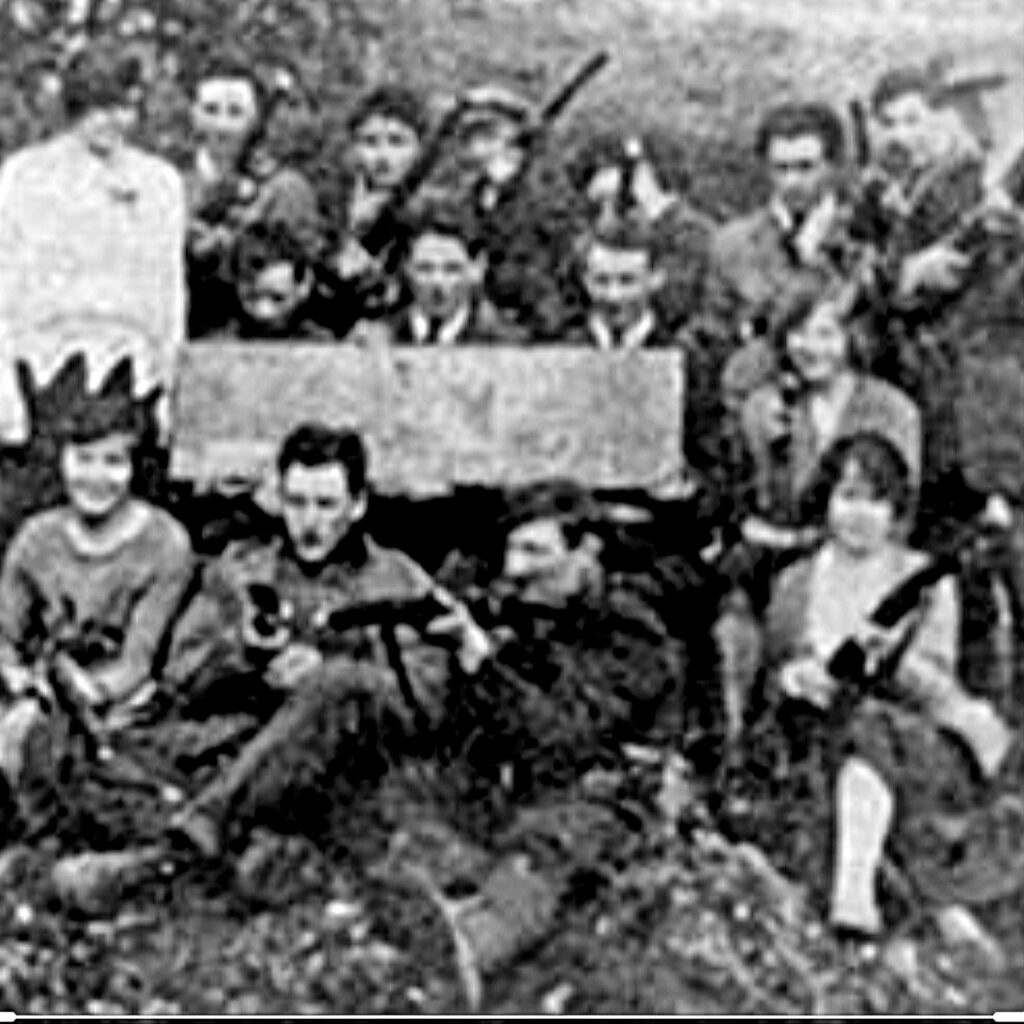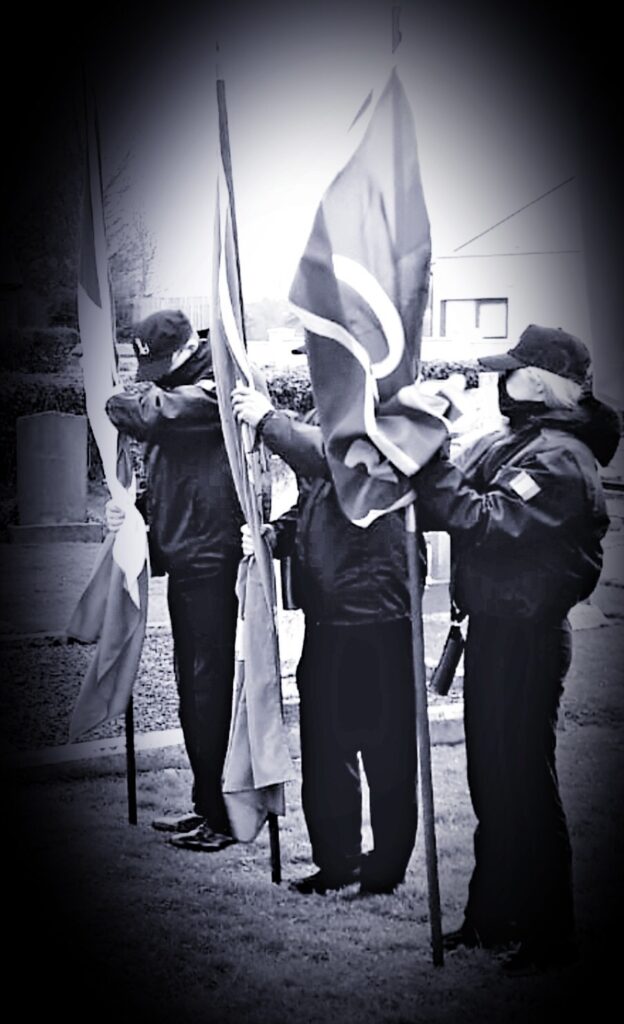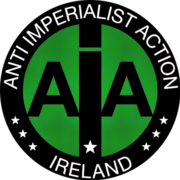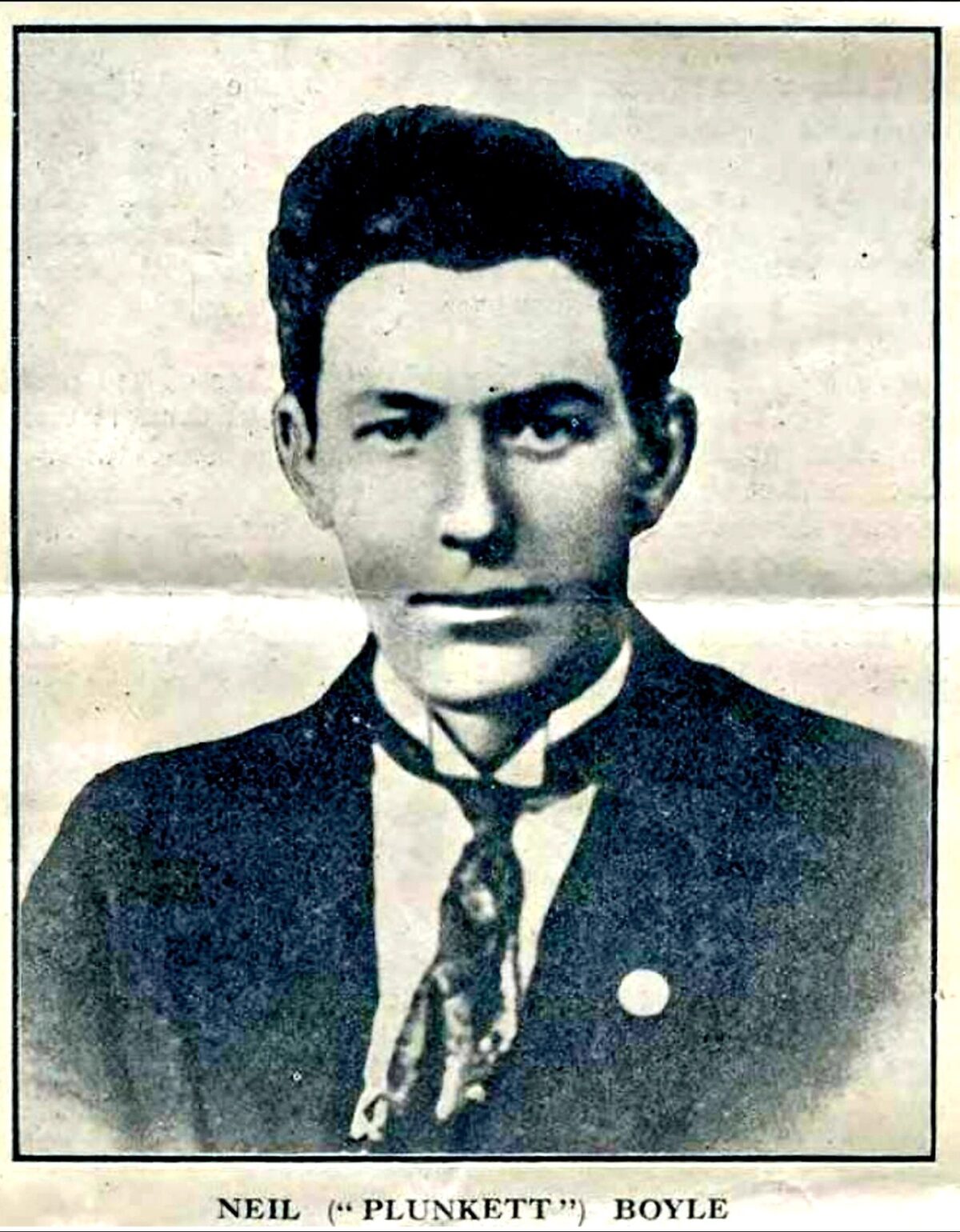Commandant Neil Plunkett Ó Boyle was not from West Wicklow but because of his heroic actions in the field became a legendary much loved leader in the County.
Plunkett Ó Boyle was born near Burtonport in County Donegal in 1898. Growing up in the Rosses he became very politically aware and held a keen interest in the Irish language, culture and sports which brought him into the ranks of the IRA.
At around 19 yrs of age, Plunket Ó Boyle joined the Lough Swilly Railway Company to help out his family following the death of his father, but due to continued harassment from the British forces of occupation he had to leave his job and emigrate to Scotland.
In Scotland he acquired a job down the mines, more importantly it was in Scotland where Neil Plunkett Ó Boyle joined B Coy, 2nd Battalion, Scottish Brigade, Irish Republican Army.
The main work of the IRA in Scotland was procuring weapons, fundraising, protecting Volunteers who were On The Run and gathering Intelligence.
While planning and organising an Arms shipment to Ireland Plunket Ó Boyle now aged 22 was captured by the Scottish police and was sentenced to five years hard labour in Peterhead Prison, Plunkett was continually tortured and kept in solitary confinement while imprisoned in Scotland.
Plunkett Ó Boyle was released and sent back to Donegal in the general amnesty following the signing of the Anglo Irish Treaty in 1921.
On learning of the Treaty Plunkett Ó Boyle became opposed to it, and saw the Treaty as a sell out of the Irish Socialist Republic.
Once back in Donegal the Counter Revolutionary Soldiers of the British Established Free State arrested him and interned him in Finner Camp.
Neil Plunkett Ó Boyle as a true Volunteer of the Irish Republican Army tried on numerous times to escape by tunnelling and planning to liberate a boat that the Free State intended to ferry the Prisoners to Dublin, but all attempts failed.
While interned in Newbridge Internment Camp, the escape committee began to tunnel out, by October 1922 up to 160 IRA prisoners made a successful escape through the tunnel by using the sewerage system pipe work.
Once back in Dublin Neil Plunkett Ó Boyle was appointed Commandant of the 3rd Battalion of Dublin No. 2 Brigade, IRA, where he was sent to organise in West Wicklow.

From November 1922 Plunkett Ó Boyle along with his new IRA Flying Column like the legendary 1798 Guerrilla strategist Michael Dwyer organised and operated in the glens, valleys and mountains between Blessington and Dunlavin and Tallaght and Glenmalure.
The West Wicklow Flying Column operated up until the ceasefire order of April 1923 and continued to live as a unit underground but the Staters armed with new weapons supplied by the British foe continued to hunt the Column out.
On the 8th of May 1923 Plunkett’s Column was spotted and attacked by the Staters, but the Column sentries had spotted the Free State Army unit and Plunkett ordered the Flying Column to open fire. More Free State units on hearing the gun battle arrived from Valleymount. The newly arrived Staters fired their weapons in every direction even hitting their own side in the panic the Flying Column escaped across nearby fields with the help and knowledge of the local Wicklow Volunteers who knew every safe house and every rock in the mountains of West Wicklow.
On the 15th of May 1923, While resting up in a safe house in Knocknadruce owned by the Norton family, Plunkett with a tight selection of Volunteers from his West Wicklow Column were surrounded by Staters who arrived from Valleymount under the Command of a Belfast man, Felix Mc Corley.
IRA Volunteer Tom Heavey, who was in the safe house with Commandant Neill Plunkett Ó Boyle stated – After a volley of shots, Plunkett wanted the mother and daughter to be let out of the house. The Staters wouldn’t hear of that and threatened to bomb the house if they did not surrender. Plunkett said, ‘Let me come out so!’ which was agreed by the enemy. Plunkett Ó Boyle emerged from the house with hands aloft and walked unarmed to greet and surrender to the Free State Officer in Command.
It was then that the Stater Commander McCorley aimed his Free State issue revolver at Plunkett and shot him twice in the head, the bullets passing through Plunkett’s raised hands and through his head.
The rest of Plunkett’s comrades in the house were then taken prisoner, badly shook and badly traumatised at witnessing the murder of their Commandant.
Throughout Co Wicklow, Commandant Neill Plunkett Ó Boyle of the Rosses of Donegal, of Scotland and of Wicklow is remembered as a fearless intelligent guerrilla leader. Gunned down by a cowardly Free Stater.
Neil Plunkett Ó Boyle is buried in Kincasslagh, Co. Donegal.
Fuar sé bás ar son saoirse ne hÉireann.


